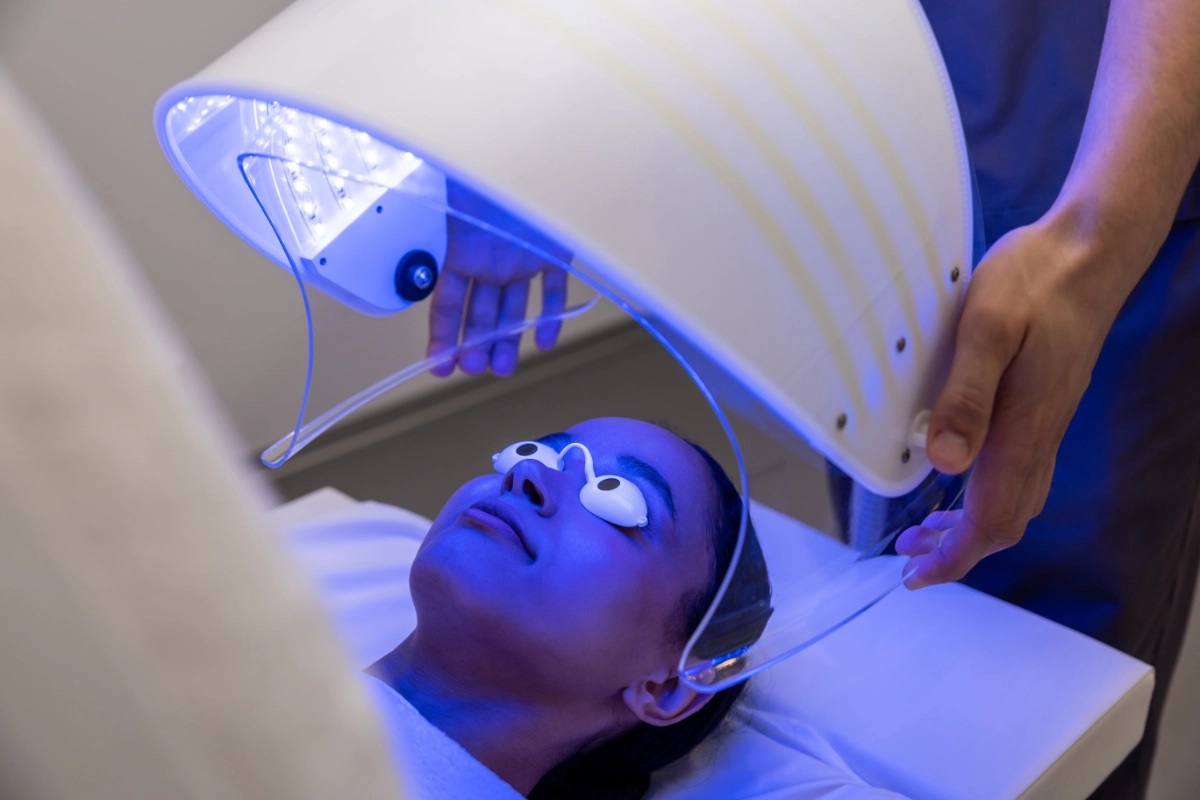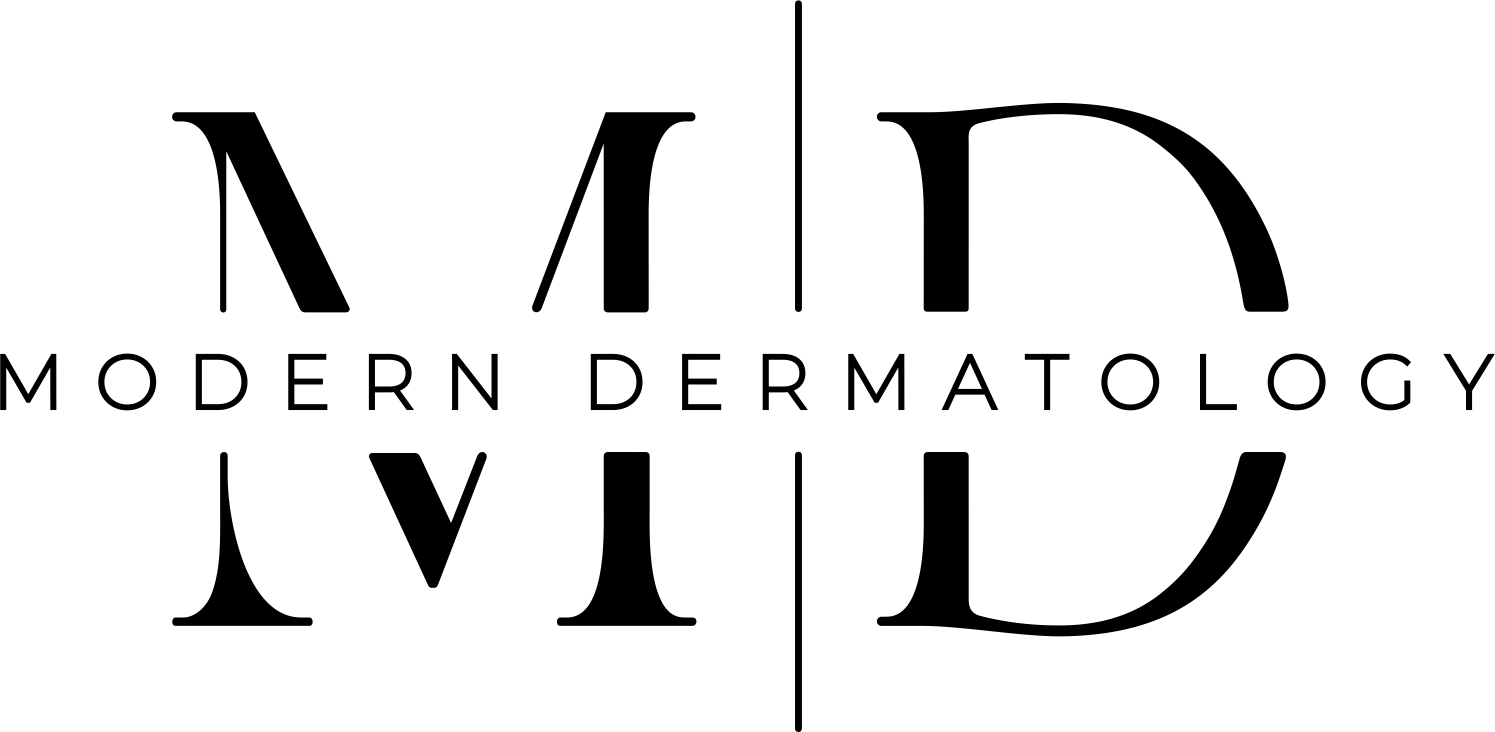
At our practice, we offer two FDA-approved topical photosensitizers for PDT:
- Aminolevulinic acid (ALA)
- Ameluz® (aminolevulinic acid hydrochloride in gel form)
Both agents are absorbed by abnormal cells and become activated upon exposure to a specialized light source, leading to targeted destruction of damaged tissue while preserving the surrounding healthy skin.
Conditions commonly treated with PDT:
- Actinic keratoses (face, scalp, and other sun-exposed areas)
- Inflammatory acne
- Field cancerization for patients with extensive sun damage
- Adjunctive treatment for non-melanoma skin cancer prevention
Benefits of PDT include:
- Non-surgical, tissue-preserving approach
- Minimal downtime and no systemic effects
- Can treat multiple lesions simultaneously
- Improves overall skin tone and texture in sun-damaged areas
Following treatment, patients can expect some redness, swelling, or peeling as the skin heals. Strict photoprotection is required for 48 hours post-procedure due to increased sensitivity to light.
If you’ve been diagnosed with actinic keratoses, have a history of chronic sun exposure, or are interested in a non-invasive treatment for acne or cancer prevention, Photodynamic Therapy may be an effective option. We invite you to schedule a consultation to learn more about how PDT can support your skin health.
